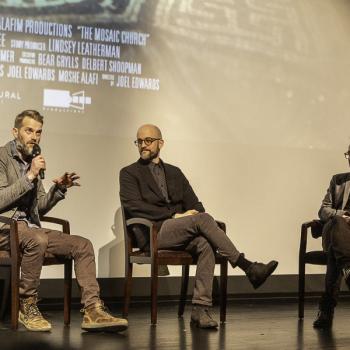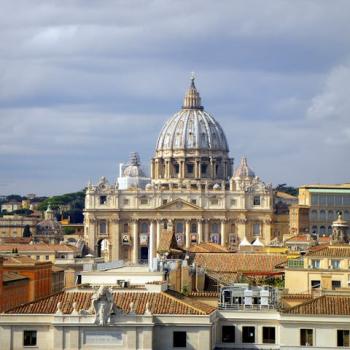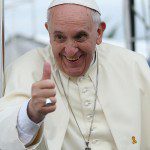The party emphasis of many mission efforts, whether national, imperial, or theological, was usually an attempt to re-create a church in the image of the missionary sender's church. Yet Jesus has set us free. For freedom he has set us free and sent us out. If he is willing to take that eternal and ultimate risk, can our own mission engagement be any less willing?
We are living with the outcome of centuries of party politics within the church. No part of the church universal has avoided the fallout of narrowed views, and indeed human beings and human communities are constitutionally incapable of seeing the world or
the whole church in other than fairly limited ways. Yet we can cultivate a broader view, one that is more consonant with the Body of Christ to which we all belong. And the whole of God's creation is a body of which we are all a part and from which we cannot be cut off.
The body has many parts, none of them identical, each with disparate and valued gifts, meant to be used for the building up of the whole, and indeed, for the healing of God's entire body. We need one another, we need the diversity in which we have been created, and we need to value and empower the varied parts of this body.
The work before us—this mission of God's—is immense, cosmic, even. The world is hungry, thirsty, homeless, sick, lonely, imprisoned, and enslaved—because some parts are. The creation is groaning in travail because of our abuse of the garden in which we have been set. The body is ailing. Joining God's mission is about seeing and responding to that corporate suffering, and beginning to understand our interconnection with the other parts of the body.
That must include a repudiation of party exclusivity and a valuing of the gifts of other parties, even if we do not wholly identify with them. Believing that God is at work in that diverse other is the beginning of that valuing.
There are signs of hope in many parts of the body. The church in China today has grown and developed from the vision of Venn, Anderson, and Allen, and calls itself the Three Self Patriotic Movement—in deference to that desire for self-governance, self-sustainability, and self-propagation. Congregations may exhibit recognizable party flavors, but they are held together in one whole, which trains clergy together and governs itself as a national church.
In much the same way, a corporate and global perspective is the only possible solution to our current environmental morass. The same is true of the violence perpetrated on nations and peoples through war and terrorism. Until we have a view that says everyone should have enough to eat, clean water, health care, housing, education, and decent and dignified employment, we will continue to build walls and wars in our own little narrow part of the increasingly fusty paddock. Indeed, we are creating an increasingly fouled sty, far too polluted for any sensible pig. We have something to learn from our non-human neighbors as well as those who are supposed to have greater wisdom.
While we continue to privilege some over others, particularly those who already have wealth and power, we only make the healing work more difficult. Generations who grow up underfed, ill, uneducated, and unemployed will be less able to contribute to the health of the whole body—and the whole body will suffer for it.
I began with Arthur for another reason—his association with the round table. That is a powerfully resonant echo of the heavenly banquet, God's table to which all who hunger are invited. Arthur's companions went and worked in the cause of justice, at least as it was understood in the English Middle Ages. That's our task as well. Jesus's table is open to all and has no seats of greater privilege. There's a wonderful T-shirt that says, "Jesus loves you, but I'm his favorite." All of those seats at God's banquet table are for the favored ones, and that includes all God's people, and all creation. Those who have sat at the banquet table, even briefly, are sent out to gather others to the seats waiting to be filled. There are seats in that festival hall for all humanity, and room for the other members of creation as well.
The Arthurian legends have come to popular consciousness in this age not so much in their own name as in the stories of Star Trek and Star Wars, ever seeking new frontiers and a society open to all sorts and conditions of creatures, not only human. The great grail myth is told again in The Lord of the Rings, and more recently in J.K. Rowling's epic of Hogwarts and Harry Potter. The eternal struggle between good and evil, selfishness and selflessness, which Christians know in the cosmic salvation drama of Jesus, continues to find echoes in unfolding human history.
The once and future king is remembered for his round table, at which those seated renewed their vows each year on Pentecost, when the church universal remembers its founding in abundant diversity. Will the Christian tradition be able to proclaim that God's table is truly open to all, without privilege or penalty, or will we be only a community of the past? Will we continue to grow in humility toward the future God continues to unfold? Are we willing to be sent out to invite others to the abundant feast?
We can only expect to enjoy that feast if we employ a politic that welcomes all parts of the body. That is our part in God's mission. And it's important to remember that it is God's mission, for which the Body of Christ—the church—exists. We participate in helping to build toward the dream God has planted in our hearts.




